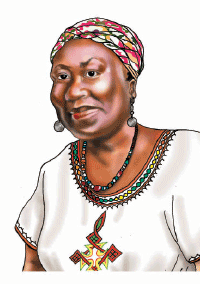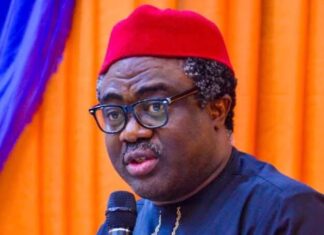The superlative terms being used to describe President Goodluck Jonathan’s early concession of defeat at the presidential election via that much-publicized call placed to General Muhammadu Buhari are beginning to give one some concern. Just about anyone or group of individuals who consider themselves as having even the slightest relevance in the scheme of things in our country – including clubs, ethnic associations and religious organisations – have made sure that, along with the congratulatory message sent to General Buhari, an equally important accompanying one is directed at President Jonathan, thanking him for his selflessness, for demonstrating statesmanship, and for helping the country avert what everyone was sure would have been real mayhem had he not taken that decisive preemptive action. With that singular act and in one fell swoop President Jonathan has gone from “clueless” to “statesman”.
Such has been the euphoria of the post-election atmosphere in our nation that all the ills and misdeeds on account of which the President and his administration were voted out appear to be fast vanishing from our consciousness. Now that President Jonathan has conceded defeat in an election he clearly lost, as aptly pointed out by the cartoonist Neearo in The Punch newspaper of Wednesday, 8th April, 2015, some Nigerians are about to promote him to the rank of a national hero! The question is: what qualifies someone to become a hero or statesman? We tend to be a people with very short collective memory; this is not good for building strong institutions and is inimical to our quest for development. We promote and allow minimally performing leaders to continue to enjoy undue influence in our affairs once we find a strand of positive action which can be held to their account. We quickly and readily dispense with the need to hold them accountable for the totality of their actions and inactions which may have caused us much suffering as a people. Thus, it is unlikely that we will ever hear a single word said anymore about all the scandals which the outgoing administration has presided over, including the magical disappearance of millions of dollars from the state coffers and the trillions of naira involved in the fuel subsidy scam.
As for the Presidency, surely its staffers would not allow this glorious moment slip by without trying to get as much mileage from it as possible. Thus, on the evening of Wednesday, 8th April, 2015, television viewers were treated to the sight of a self-contented Dr. Reuben Abati, the President’s Special Adviser on the Media, pontificating about the need to guard against hate speeches and to refrain from heating up the polity – a barely disguised reference to Oba Akiolu of Lagos, who had threatened the Igbos that if they dared to vote against his governorship choice, Akinwumi Ambode, they would perish in the lagoon. While condemning in the strongest terms possible such an outburst from someone of Oba Akiolu’s social status, one nevertheless cannot but wonder: where was the Presidency when Doyin Okupe was busy abusing just about anyone in sight who had the slightest scent of being opposed to President Jonathan on any issue? How about Governor Fayose of Ekiti and his death-wish advertorials aimed at General Buhari during the presidential campaigns? And certainly, Dr. Abati saw nothing of the mother of all hate speeches unleashed by the wife of the President, Dame Patience Jonathan herself, who lost all restraint and self-control in her virulent attacks on the person of General Buhari and Northerners in general?
On the Oba Akiolu misconduct, by the way, the Igbos should be pleaded with not to allow the incident to become blown out of proportion. The advertorial taken out in The Punch of Thursday, 9th April, 2015 by the “Ndigbo Lagos” could be considered a tad overdramatic when considered within the general context of the Igbos’ experience in Lagos. The advertorial recalled that “the painful experience of the pogrom of 1966 and 1967 (which started with similar incitements) in which over 30,000 Igbo men, women and children were massacred; the subsequent civil war in which over 2 million lives of mostly innocent civilians from Eastern and Midwest Nigeria were lost, had their foundation from incitements.” Without seeking to be partisan (coming from the Southwest as I do), it is important to note that Lagos has been particularly welcoming to non-indigenes, a stance evidently dictated by the historical and commercial roles it has played. Lagos is about the only state which readily appoints non-indigenes into high-level positions in its government and, as evidenced in the last elections into the National Assembly where candidates of Igbo origin won seats to represent Lagos, it is possibly the only state so far where being a “son of the soil” is not a requirement for contesting an election. References made in the “Ndigbo Lagos” publication to the ethnic cleansing at Srebrenica and the Rwandan genocide do not quite compare with the situation at hand, given that not a single person has spoken in support of Oba Akiolu.
Returning now to President Jonathan’s “heroic” act, let us hope that there are no exploitative undercurrents involved, for all this heaping of accolades on the President may well be a deliberate, orchestrated ploy to manipulate the people’s sentiments and grant him a soft landing as he exits the presidency. Let us do ourselves good and put democracy on a firmer footing by holding our leaders accountable.














